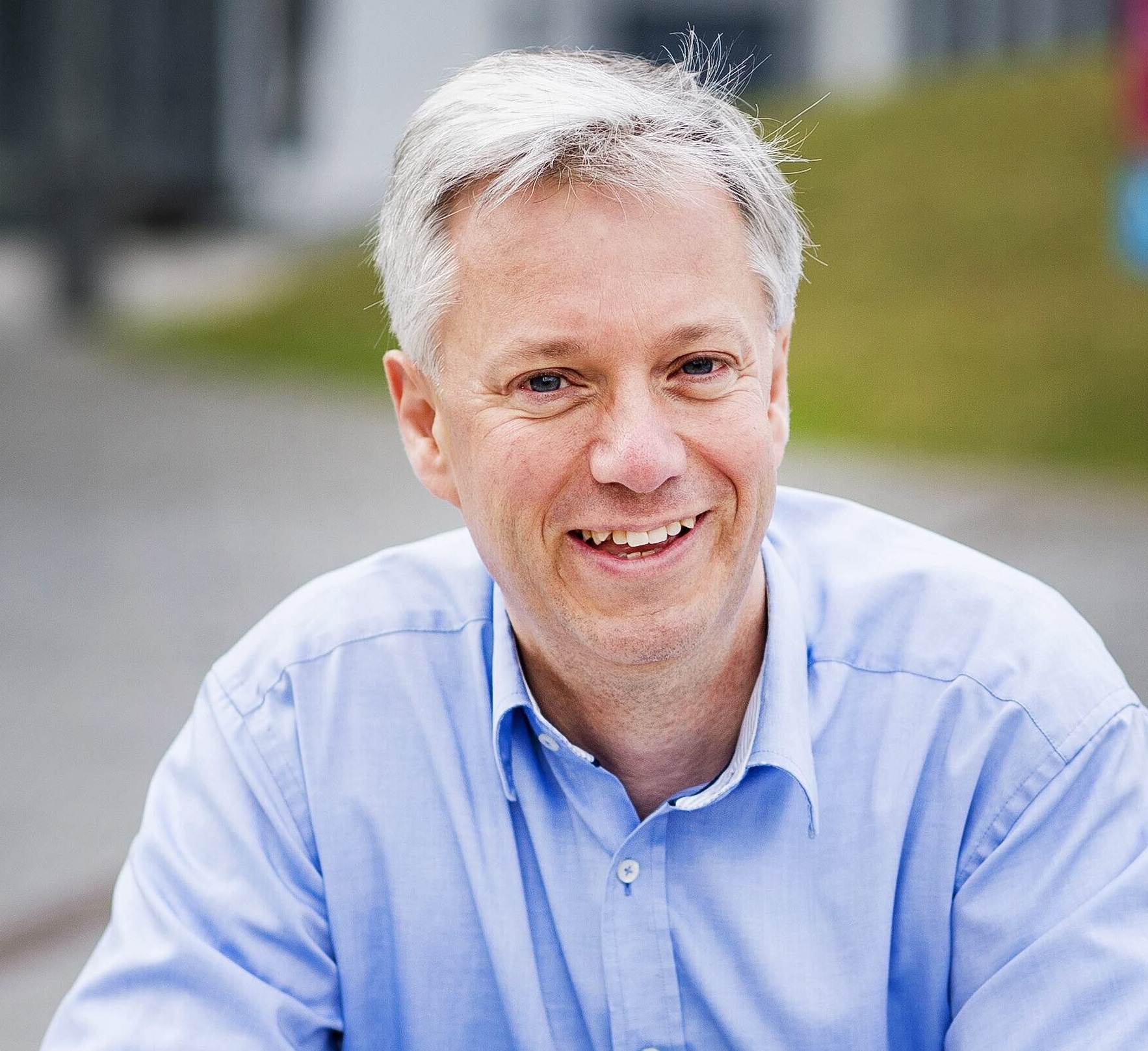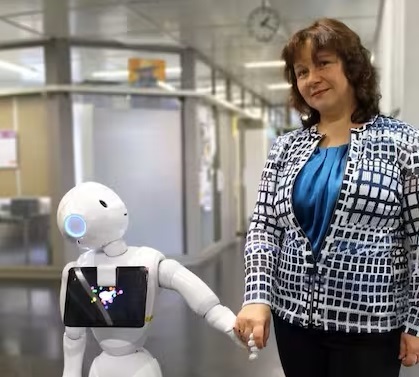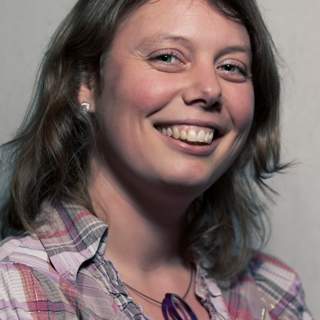Join us for an inspiring one-day symposium exploring the future of AI and mental health! This dynamic event brings together researchers from TU Delft and beyond to share insights, spark new collaborations, and explore how AI can be harnessed to support mental well-being in meaningful and responsive ways. Be inspired by thought-provoking keynotes and lively discussions. Are you an early-career researcher? Showcase your innovative work in our poster and flash talk sessions—we’d love to hear from you!
Keynote talks, interactive sessions, posters and flash talks for PhD students and postdocs!

From One-Size-Fits-All to One-of-a-Kind: Adaptive Behaviour Change through Digital Coaching

Developing Digital Innovations to Improve Mental Health Among Underserved Communities

Stress and Pain Regulation in Mental Healthcare through Connected Systems of Social Robots and Wearables

Tell us about your exciting project!
Call for posters!
.
Mental health disorders like depression and anxiety are among the leading causes of disability worldwide. Technology—such as digital health tools, wearables, and AI—has great potential for early diagnosis, treatment, and reducing societal costs. However, new technological capabilities also come with challenges such as ethical issues, data privacy concerns, and the risk of widening health inequities.
With rising demand for mental health care and the rapid advancement of AI, urgent action is needed to shape a future where digital mental health truly enhances mental health and well-being and eases the burden on mental healthcare systems. Interdisciplinary collaboration is needed to shape a future where technology serves as a force for good in mental health.
This Special Interest Group aims to connect researchers working at the intersection of mental health and technology in technical, medical and social sciences, foster impactful collaborations, and establish a transformative knowledge hub at TU Delft. Through joint activities, we seek to advance research, innovation, and real-world solutions.
Key Goals:
By bringing together expertise across disciplines, we aim to drive innovative, technology-driven solutions for mental health challenges. Join us in shaping the future of mental health technology!

Dr. Sebastian Porsdam-Mann, a postdoctoral researcher at the Center for Advanced Studies in Bioscience Innovation Law at the University of Copenhagen, presented his research on personalized large language models for health.

Ethical Technology Interventions for older adults experiencing homelessness
Dr. Bonnie Erwin is a PhD student at Arizona State University.
Neurotechnology: applied neuroscience and psychiatry
Abstract. Neurotechnologies promise fast, efficient psychiatric insights not readily available through the conventional observation of patients. Recording and processing brain signals provides information from 'beneath the skull' that can provide a basis to evaluate general behaviour and functioning. But it ought not to be forgotten that the use of such technologies is part of an interpersonal human practice of neuroscience informed psychiatry. This talk notes some challenges in the integration of neurotechnologies into psychiatry and suggests vigilance particularly in respect to a wider bio-psycho-social model of mental health. In this way, psychiatry can avoid a drift toward an overly reductive technological approach while nonetheless benefitting from promising advances in neuroscience and technology.
Bio Dr Stephen Rainey is a senior researcher in philosophy and ethics, specializing in neuroethics and neurophilosophy as part of a wider philosophy and technology agenda. His background is in analytic philosophy of language, discourse ethics, and governance theories, with a smattering of physics along the way. These themes come together in his 2023 book Philosophical Perspectives on Brain Data, which raises and addresses questions about how neurotechnologies can and ought to be used. He is currently exploring intersections between neurotechnologied and LLMs, especially the prospect of mind-reading technology.

Engagement and personalization in digital mental health interventions.
Saskia Kelders is Associate Professor at the Department of Psychology, Health and Technology at the University of Twente, Enschede, the Netherlands and extraordinary professor at Optentia Research Focus Area, North-West University, Vaal Triangle Campus. She chairs the ‘engaging eHealth Technology lab’ at the University of Twente which focuses on improving development, evaluation and implementation of digital health interventions. Her work combines technological and psychological perspectives and is multidisciplinary in nature. She uses innovative research designs and concepts to investigate the relationship between technology, engagement and effectiveness (e.g. fractional factorial RCT; engagement). Currently, she works on her personal ERC Starting grant on engagement as a mechanism of impact for digital mental health interventions. In this innovative new research line, she uses new-to-field and challenging research methods (e.g. single case experimental design, realist evaluation, personalizes and adaptive interventions) by e.g. making smart use of the possibilities of technology. She is also editor of the eHealth handbook with contributions from many influential (inter)national scholars, and lead educator of a massive open online course (MOOC) on eHealth with over 23.000 participants.

Bio. Iulia Lefter is an Associate Professor at Delft University of Technology, specializing in affective computing and the development of Affect-Sensitive Systems—technologies that can perceive and respond to human emotions and behaviors. Her work plays a key role in advancing mental health support through intelligent systems that adapt to users' emotional states, aiming to empower individuals in achieving personal goals and improving well-being. Her research spans multimodal analysis of verbal, non-verbal, and physiological signals, combining them to meaningfully interpret affective states. She is particularly interested in designing intelligent agents that leverage this information to support users in a personalized and adaptive way. Iulia has contributed to interdisciplinary projects including emotional regulation in psychiatric care using VR therapy, stress and anxiety prediction, and designing technologies that enhance social connectedness of hospitalized childern across distance. Through stakeholder-driven design, she ensures these systems are not only effective but also ethically grounded, user-friendly, and aligned with real-world mental health needs.

Bio. I am an Assistant Professor at Delft University of Technology (TU Delft) in the Netherlands, where I lead the RISE Group (Research on Inclusion, Social Justice, and Equity in Digital Health). My research focuses on the opportunities and challenges of AI-driven digital mental health solutions—such as apps and chatbots—ensuring these technologies are inclusive, equitable, and accessible to all, with a particular emphasis on youth and women’s digital health. Before joining TU Delft, I was a Postdoctoral Scholar at the University of California, Berkeley, where I worked on projects aimed at reducing healthcare disparities through digital mental health interventions. Recently, I was selected as a Harkness Fellow (2025-2026) and will spend a year at Stanford University in the United States conducting policy-focused research on AI-driven mental health tools for young people. Through my work, I aim to influence digital health policies, programs, and services to improve access to and quality of mental health care—particularly for underserved communities. By bridging technology, research, and policy, I strive to shape a more equitable and just future in digital health.

Would you like to know more about our activities? Are you interested in collaboration? Please don't hesitate to get in touch!
You can reach us at i.lefter(at)tudelft(dot)nl and c.figueroa(at)tudelft(dot)nl.